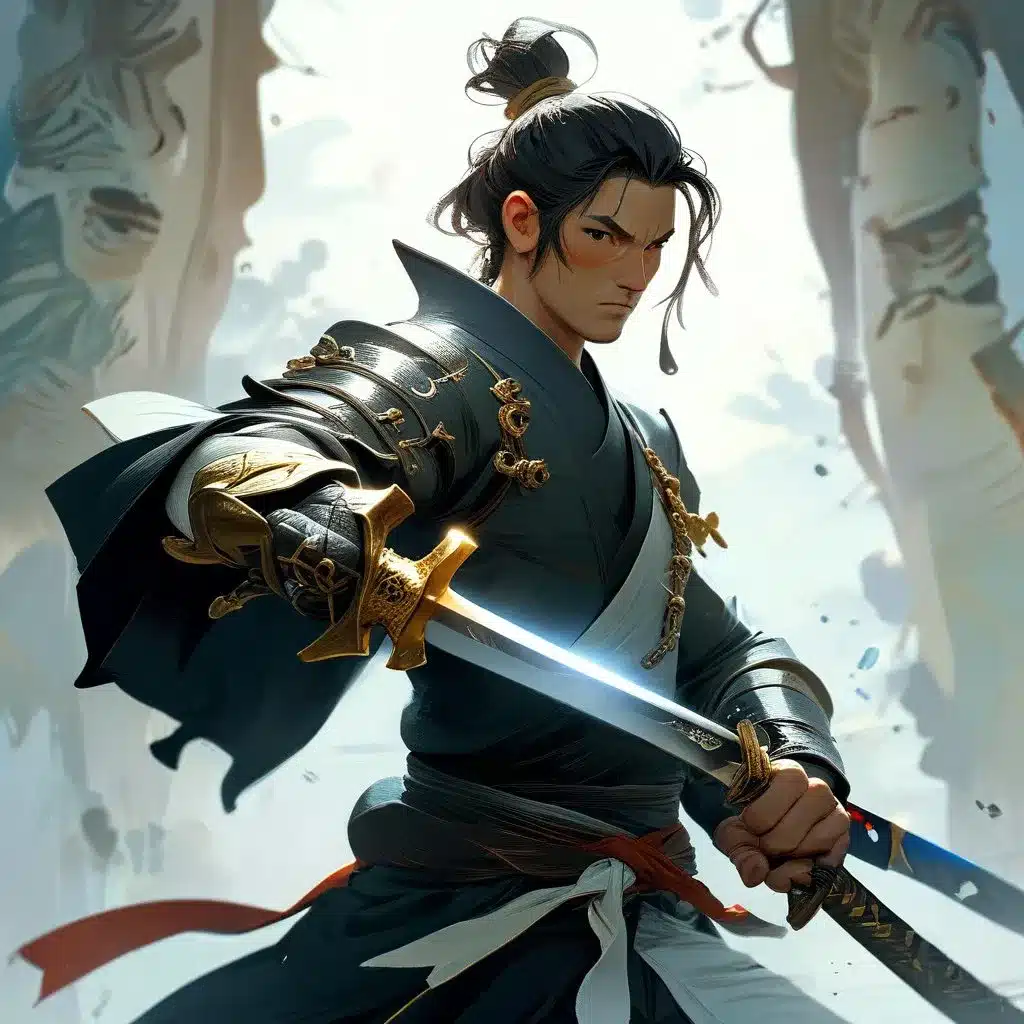Table of Contents
Have you ever heard of the legendary swordsman who mastered the way of the sword and revolutionised martial arts in Japan? Known for his undefeated record in over 60 duels, he left an indelible mark on history. His journey wasn’t solely about combat but also encompassed philosophy, self-discipline, and the pursuit of perfection, inspiring countless people over the centuries. Let’s take a closer look at this iconic figure’s unbeaten path.
Early Life and Rise to Fame
Born in 1584, the master swordsman Miyamoto Musashi grew up during a significant change in Japan. The transition from feudal wars to the Tokugawa Shogunate era set the stage for his development as a warrior. Trained in swordsmanship from a young age, he fought his first duel at 13 and emerged victorious. This early success marked the beginning of a lifelong journey that saw him travel as a rōnin, continually seeking to perfect his skills.
One of his most famous battles occurred in 1612 when he faced off against Sasaki Kojiro, a renowned swordsman. The victory in this duel solidified his reputation as the greatest warrior of his time. However, this man’s influence extended far beyond the battlefield; he was also a philosopher and artist, contributing to his legacy’s complexity.
A Unique Approach to Swordsmanship
Unlike most samurai, who used only one sword in combat, he developed a technique that involved wielding both a katana (long sword) and wakizashi (short sword) simultaneously.
Key elements of his strategy included:
- Timing: Victory wasn’t just about skill but also precision. He often waited for the perfect moment to strike, catching opponents off guard.
- Adaptability: His philosophy emphasised the need for flexibility in both thought and action, enabling him to respond effectively to changing circumstances.
- Mental Focus: A calm mind was essential to his approach. He maintained unwavering focus during duels, allowing quick, decisive actions under pressure.
The Philosophy Behind His Journey
In his later years, he authored The Book of Five Rings (Go Rin No Sho), a text that delves into his strategies and philosophy. This book has become an essential resource for martial artists and strategists.
Some of his core philosophical ideas include:
- The Void (Emptiness): The concept of “the void” was central to his teachings. He believed mastery comes from a mind free from distractions, where one can act with fluidity and intuition.
- Lifelong Learning: Even after undefeated battles, he remained committed to growth and learning, extending his interests beyond swordsmanship to calligraphy, painting, and sculpture.
- Detachment: He advocated detachment from material possessions and desires, believing such attachments hinder personal development and decision-making.
Life Lessons from the Warrior
The life of Miyamoto Musashi offers valuable lessons applicable beyond martial arts.
- Perseverance: His life exemplifies the importance of persistence. He was never content with his current skill level and always strived for improvement.
- Self-Mastery: His focus on self-discipline highlights the value of pushing beyond one’s comfort zone to achieve true mastery in any field.
- Adaptability: His ability to adapt his techniques to different circumstances, both in battle and life, showcases the importance of flexibility in achieving success.
Visiting His Birthplace
Musashi was born in the village of Miyamoto, now part of Ōhara-Cho in Okayama Prefecture. The village features several landmarks dedicated to his memory. This includes the Musashi Shrine, where tourists can pay homage to his spirit. Another notable attraction is the Musashi Museum, which houses artifacts and exhibits detailing Musashi’s life, including his famous duel with Sasaki Kojiro. Surrounded by the serene landscapes of rural Japan, the area provides a reflective atmosphere, allowing visitors to immerse themselves in the philosophy and spirit that defined Musashi’s unbeaten path.
Miyamoto Musashi’s life and teachings continue to resonate with people worldwide, offering timeless wisdom on perseverance, adaptability, and self-mastery. His journey is a powerful reminder that true excellence lies in pursuing personal growth and refinement. Whether through swordsmanship or philosophy, Musashi’s unbeaten path leaves an enduring legacy that transcends time.


